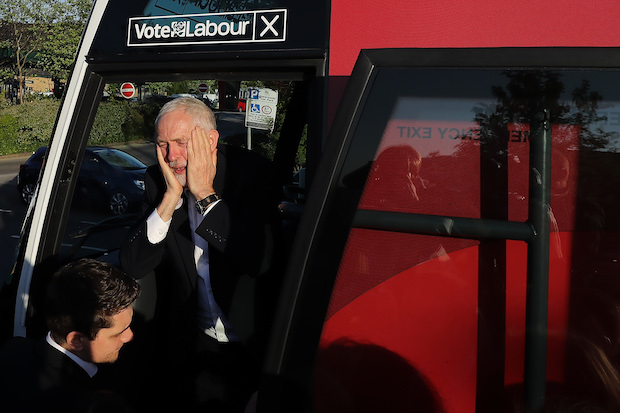The day of a party’s election campaign launch ought to generate some pretty straightforward policy coverage. Instead, Labour yesterday managed to cause confusion once again as Jeremy Corbyn tried to set out Labour’s position on Europe. In a speech in Manchester, the Labour leader asserted that the question of whether the UK would leave the EU had been ‘settled’ – before going on to argue that the task ahead was to stop the wealthy elites, who are trying to ‘hijack’ Brexit.
Given that Labour have been accused of sitting on the fence over Brexit, this appeared to clear up their position (even if he did leave out any specifics of what a Brexit under Labour would look like). But just hours later, Corbyn appeared to perform a reverse ferret in an interview with the BBC. Quizzed repeatedly on whether the UK will definitely leave the EU if he becomes prime minister, Corbyn refused to answer seven times. He insisted that he would ‘get a good deal from Europe’ – but wouldn’t say what would happen if he didn’t. In an attempt to clear up the mess, a Labour spokesman later said that the UK will leave the EU if the party wins the election.
Labour’s approach to Brexit is remarkable in that it appears to work on the principle of the greatest upset for the greatest number. Usually a party would try to swerve a sticky policy topic by saying a few things that each side wanted to hear. Instead, Labour has a pattern of saying exactly what one side of the EU debate doesn’t want to hear – before, usually in the space of two hours, performing a U-turn and saying exactly what the other side doesn’t want to hear. Such an approach seems a vote loser all round and means the scale of Labour’s defeat in June risks being monumental. Not that Corbyn will necessarily exit the stage if it is.







Comments